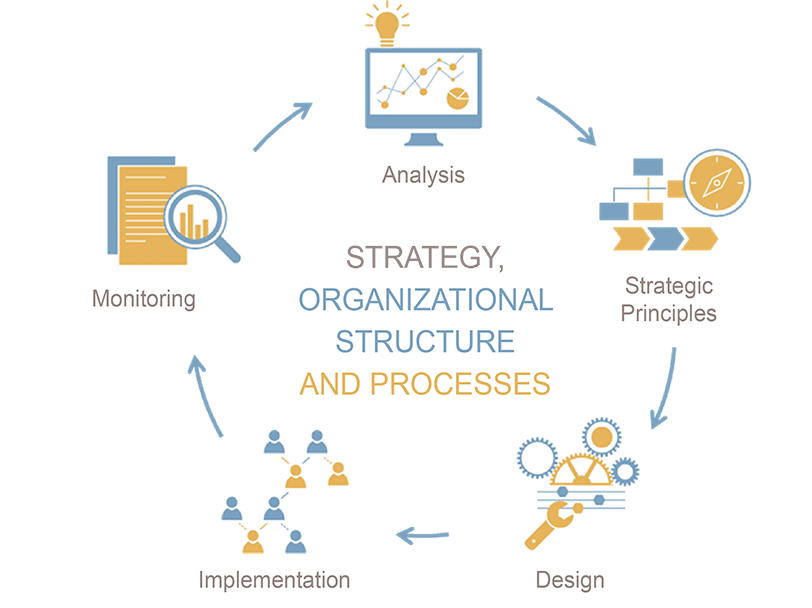“We’re more than consultants.”
“It takes great dedication, candor and sensitivity,” Manijè Alexander-David emphasizes, leaving no doubts about the enthusiasm with which she approaches her work. She and Felix Ribi are part of an interdisciplinary team of consultants that offers support to EBP clients when it comes to enhancing processes, structures and strategies. Comprised mostly of engineers from different fields, the team doesn’t see itself as a classic consultant.
“Organizational and process consulting has become the focus of more and more of our projects. It’s a sign of the times, as it were. Many of our clients have structures and processes that have developed over time. And suddenly, they notice they’re no longer working.
“One of our special strengths? We listen!”
“While companies need to lower their costs, they would also like to improve their processes, accelerate and digitalize,” the environmental and business process engineer says, explaining the concerns of her clients. “Or they need to respond to new legal requirements, or take on additional tasks.”
Increasing need for organizational and process consulting
Many sectors have seen strong development in recent years. “EBP has therefore carefully expanded the range of its organizational consulting services while also focusing on the provision of practical, tailor-made solutions. Our clients include private-sector enterprises, public agencies and universities,” explains Felix Ribi, specialist for environmental science and business administration at EBP. One project example: Commissioned to help the municipality of Davos improve the management of its sports facilities, EBP discovered a lack of clearly defined roles. As it turns out, both the municipality and the local office of tourism were responsible for various aspects of the financing, operation, maintenance and marketing of the sports facilities. “We worked out the requirements that would need to be met within a new organizational structure. Then we analyzed the current-state and sat down with the client to define a clear set of roles corresponding to the various competencies of the two organizations. The arrangement at the end was that the municipality would assume responsibility for financing, operating and managing the facilities, while the office of tourism would concentrate on marketing,” Ribi recalls.

Understanding the environments in which our clients operate
“We know the environments in which our clients operate, as well as the services they provide,” says Ribi. All of the core members of the organizational and process consulting team have a background in business administration. Individual members each have their own specialisms: there are security specialists, environmental and construction engineers, energy-management professionals and real-estate experts. Expanded teams include experienced specialists in transportation, the environment, construction, spatial planning, communications and IT.
“We look for solutions, not theories.”
EBP’s team members are not interested in superficial, standard solutions. “Our aim is to find practical solutions that are ideally suited to our clients; solutions that make sense and enjoy high rates of employee acceptance. Anything less is likely to have no lasting impact,” says Alexander-David, before going on to emphasize the importance of listening and describing situations in the kind of clear manner that encourages discourse and participation.
Familiarity with the business of our clients is a unique advantage
“When working together with us, our clients value the soundness of our proposals and approaches to implementation,” says Ribi. He points out the prevalence of change management. “We’re engineers. We look for solutions, not theories. And we’re trained to adapt to continuously evolving requirements. Our clients notice that.” They appreciate EBP’s understanding of their specific business environments. That’s also why our project leaders build their interdisciplinary teams with an eye to their specific consulting assignments. The combination of specialist knowledge and business expertise gives EBP a unique advantage.

The problem is the problem
The individual steps taken in the context of organizational or process consulting are actually quite simple: analysis, target definition, conceptualization, implementation and monitoring. “Often, the challenge is to find out what the actual problems are. What is really at stake? Who is involved? Does the information provided correspond to the facts, or is it part of a self-defeating narrative? What is the impact of any prevailing hierarchies? Given that you need to get in the clear on these things, this phase requires extraordinary attention, experience, tact, curiosity and candor,” says Ribi. The focus can then be shifted to solving the problem.
“The first challenge is to identify the actual problem.”
An example: EBP was commissioned to advise a company’s security unit. The project team discovered that unit staff needed to write up to 20 emails for each new employee to find out which rooms the employee was authorized to enter. Although it was immediately obvious to external consultants, no one at the unit was aware of the complex arrangement. The solution: the unit now sends one email that includes a link to a central form – a small adjustment with a major impact. Often, the sources of problems are different from those suspected by the clients themselves. “Clients can also get deeply involved in trying to eliminate symptoms instead of causes. As a good consultant, you have to deliver a sound and sensible approach, keeping in mind that extensive restructuring is not always the best solution. Sometimes, carefully cali-brated coaching sessions with the key individuals suffice,” says Alexander-David. “And occasionally, all that is needed is an impartial arbiter to point management or employees in the right direction, even if the solution has already been identified.”
Taking a considered approach to digitalization
Digitalization plays an important role in many change processes. “However, it is only one part of the processes, and not the purpose. Enterprises shouldn’t digitalize their processes just because it’s technically feasible,” Alexander-David points out.
“Think first, then digitalize.”
It is essential to first consider how processes can be shaped for greater efficiency and effectiveness. “Often, this can be best accomplished in the context of joint workshops and on paper. Then you can turn to a consideration of how best to provide technical support for the new process landscape. Think first, then digitalize!”
Embracing the responsibility
“Our expertise in the area of organizational and process consulting allows us to make valuable contributions to business success. A good measure of curiosity is essential when it comes to assessing the unique situations of our clients,” says Ribi, describing his enthusiasm for his work. For her part, Alexander-David is especially motivated by the impact her efforts can have: “I know that our work will make a difference. I’m fascinated by the extent to which it always comes down to people. When we change a process, it will have an impact on the daily routines of employees. You have to embrace the responsibility that comes with this because you can really put things in motion.”